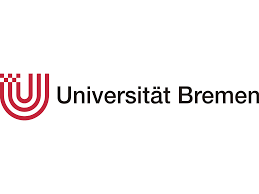University of Bremen- COALA: voice assistant for the production of the future
A trustworthy, intelligent voice assistant is supposed to provide people who work in production with answers to all technical questions in the future – immediately, reliably and reliably. An international team from science and industry is now researching this in an EU project under the direction of Bremen.
Getting the right information and quick individual help even with complex problems at the workplace in production without a time-consuming search. The system is based on artificial intelligence and should also enable knowledge transfer between employees. 14 partners from five nations are now working in the new European research and development project “COALA” (COgnitive Assisted agile manufacturing for a LAbor force supported by trustworthy Artificial Intelligence). In Germany, the BIBA – Bremen Institute for Production and Logistics and the Institute for Technology and Education (ITB) at the University of Bremen are involved. The coordination of the 5.7 million euro project lies with BIBA.
Diverse challenges
Knowledge-intensive manufacturing processes require qualified employees. Their training is very time-consuming and costly for companies. The shortage of skilled workers makes things even more difficult for companies. Another challenge for the manufacturing industry in competition are the steadily shortening production cycles and the increasing variety of products. The COALA project partners from science and industry want to contribute to the solution. They are based in Italy, the Netherlands, Greece, France and Germany.
AI ethics as the top priority
With the advancement of digitization and the introduction of artificial intelligence (AI) into management and production processes, ethical questions about these new technologies are increasing. One speaks here of the “AI ethics”. The research and developments in the COALA project take place under this aspect. The focus is – with the integration and use of all technical possibilities – primarily on transparency and the protection of companies, their data and the privacy of all users. Correspondingly, COALA will develop a “trustworthy language assistant”, assure the partners.
Still with working title “COALA”
As Alexa, Bixby, Cortana, Siri & Co., voice assistants answer all kinds of questions. Fearing for their privacy and data, many people still forego the services of these intelligent helpers, but they are now increasingly valued as extremely useful companions in everyday life. Because they save time and effort, immediately provide the information you need as well as helpful suggestions and entertainment. One of the first trustworthy voice assistants for industry is now being created in COALA. In the future, it will support workers in production and can be used, for example, on a smartphone or tablet.
Safe with Mycroft and WHY engine
The COALA solution is based on the privacy-focused open assistant Mycroft. Among other things, it enables the rapid generation of data analyzes and the provision of information for individual workstations. Their basis is complex, distributed company data.
The COALA assistant should, for example, be able to answer the question: Why did the yarn in my loom break? A quick, reliable response on site during the ongoing process allows a prompt reaction to production problems and thus saves costs. The answer requires the processing of a wide range of data also from different databases in different departments.
Another heart of COALA is a new kind of explanatory software, the WHY engine. It should enable the assistant to answer why questions. Users can ask these questions at any time to better understand why and on what basis the wizard gave a particular answer.
AI skills in vocational education
An important pillar of the successful use of language assistants in production is the integration of AI in vocational training. The ITB will develop a didactic concept using the example of the textile industry. In addition, a change management process is being developed in COALA, which informs specialists and management about opportunities, challenges and risks in the cooperation between humans and AI.
Three use cases at a glance
The consortium researches and develops on the basis of three exemplary application cases from the industrial fields of textiles, chemicals and household appliances (“white goods”). For this purpose, the project partners Fratelli Piacenza (Italy), Diversey Netherlands Production (Netherlands) and Whirlpool EMEA (Italy) open their production facilities and make data available. In addition, the textile academy in Biella (Italy) is involved with its extensive range of training courses for skilled workers.
Forecast: Considerable time and cost savings
The project partners say that the COALA system is of considerable economic relevance for the companies using it. It could help to reduce the training times for machines and systems and to avoid quality problems. Based on their preliminary studies, they assume that associated costs could be reduced by up to 60 percent in individual cases. The accelerated training of employees also affects the set-up times. Here they expect a reduction of between 15 and 30 percent.

